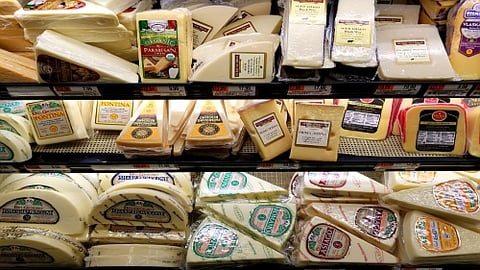The Debate Over Wine Sales at Grocery Is Evolving
It’s bordering on a vintage debate: Should all grocery stores be able to sell wine and do supermarkets hold an advantage for wine sales? New research and new product offerings underscore the value of grocery stores as destinations for wine enthusiasts and would-be wine drinkers.
Currently, 39 out of 50 U.S. states allow wine sales in grocery stores. Earlier this year in New York, two lawmakers proposed a bill that would allow full-service grocers to sell wine, a move opposed by many independent liquor store owners and some in the wholesale business.
[RELATED: Pennsylvania Grocers Can Now Sell Ready-to-Drink Cocktails]
Such debates continue to simmer in other states, too. Last year, a new law went into effect in Colorado that enabled shoppers to buy wine at their local grocery stores. Grocers in Connecticut, meantime, continue to advocate for laws that would permit wine sales in their stores. Other states that prohibit wine sales in supermarkets include Alaska, Delaware, Kansas, Kentucky, Maryland, Minnesota, Mississippi, Rhode Island and Utah.
As the issue remains unsettled in some parts of the country, new research shared by FMI – The Food Industry Association highlighted the impact of allowing food stores to purvey wine. Dr. Vincenzina Caputo of Michigan State University studied wine sale reform in Tennessee and wrote a report on its policy and implications; according to that research, liquor stores in Tennessee didn’t experience a “statistically significant” increase in store closures as feared when wine sales were okayed in grocery stores.
The takeaway, said FMI’s VP of State Government Relations Elizabeth Tansing, is that there is room for many retailers across the wine-selling landscape. “Consumers value the convenience of being able to purchase a bottle of wine to have with dinner at the same location where they shop for their groceries. Through this research, we have shown that allowing wine sales in grocery stores does not lead to liquor store closures as some would suggest, and in fact has positive benefits for the state in increased tax revenues while at the same time giving consumers greater options for making their wine purchases,” she said, adding, “This research demonstrates that state governments can be confident that allowing wine sales in grocery will not harm the liquor store sector, will bring additional revenues to state coffers, and will provide shoppers with greater choice.”
Meanwhile, as wine sales have dipped in recent years compared to pandemic-era highs and in the wake of changing preferences among younger consumers, winemakers are ramping up their R&D efforts.
[RELATED: Gen Z's Impact on Beverage Trends Grows]
The Private Label Manufacturers Association (PLMA) recently reported that the innovations in private label wine categories continue, fueled by private brands like Albertsons Cos.’ Vinaforé and O Organics lines and ALDI’s California Heritage Collection. PLMA is adding a dedicated wine and spirits pavilion to its annual event near Chicago in November.
More better-for-you wines are also coming to market. This summer, the Lifevine brand introduced a 2023 California Chardonnay with zero sugar and no detectable pesticides and made from organic grapes.






